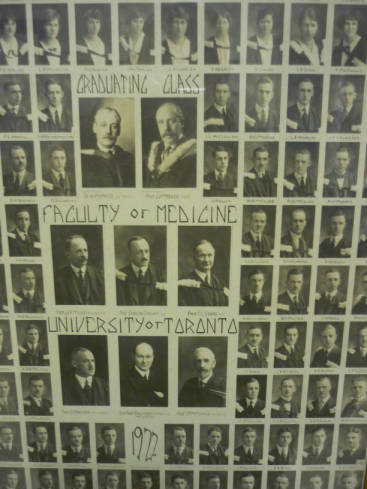- Home
- History
- Community
- Organizations
- Chinese Consolidated Benevolent Association
- Victoria Chinese Canadian Veterans Association
- Chinese Public School
- Clan Associations
- County Assocations
- Dialect Assocations
- Friendship Associations
- Political Organizations
- Recreational Associations
- Religious Organizations
- Women's Associations
- Other Organizations
- People
- Resources
- Contact
Dr. Victoria Chung (1897-1966)
Adapted from:
John Price and Ningping Yu, “A True Trailblazer: Victoria Chung Broke the Mould for Women and Chinese Canadians,” Times Colonist, 23 October 2011.

John Price and Ningping Yu, “A True Trailblazer: Victoria Chung Broke the Mould for Women and Chinese Canadians,” Times Colonist, 23 October 2011.
Named after British Columbia’s capital city where she was born and raised, Victoria Chung earned a medical scholarship and spent her life working as a medical missionary in China.
Victoria’s parents immigrated to Canada from China in the 1880s. Her father worked on the Canadian Pacific Railway then settled in Victoria. Her mother was educated in a Christian school in Guangzhou, where she received training as a midwife.
Graduating class of the University of Toronto’s Faculty of Medicine, 1922. Victoria Chung is top row, third from right.
Their daughter, Toy Mea, was born in 1897. Her parents called her Victoria after the city and the Queen who had reigned for 60 years.
Victoria graduated from Vic High in 1916. The Chung family was active in the Chinese Methodist Church on Fisgard Street, and after graduation, Chung earned a medical scholarship from the Presbyterian Women’s Missionary Society. She took this scholarship to the University of Toronto where she was one of the first BC women to train there as a physician.
In 1923, the Women’s Missionary Society sponsored Chung to work at the Marion Barclay hospital in Jiangmen city in southern China. The same year that Chung left, Canada passed the Chinese Immigration Act, otherwise known as the Chinese Exclusion Act. Until it was repealed in 1947, this act ended Chinese immigration to Canada. The only exemptions were children born in Canada, consular officials, businessmen, and students. When Chung’s father and mother decided to join her in China in 1924, they were giving up their right to return to Canada. Over the next thirteen years, Chung did leave China twice to continue her medical training in Toronto, New York and London.
At the outbreak of the Second World War, Chung had the option of leaving China, or facing internment like other missionaries. She decided to stay in China. She set up community clinics that provided health services for local people. After the war, she helped re-establish the Marion Barclay Hospital and took over as director. During the Korean War, she was unjustly accused of stealing hospital funds as a foreign spy. To avoid punishment she paid a large fine. The state later exonerated her and returned the money, which she donated to the hospital to purchase radiation equipment.
After the 1949 revolution, she remained a committed Christian, rather than joining the Communist Party, as her friend Dr. Annie Wong did. Even so, the Chinese government named Chung a “model worker” in the 1950s and later presented her with an award as a “national hero of culture.” Although she was not married, Chung adopted a son to keep the family line going. Chung continued to work as a physician, sometimes in rural communities, until her death from cancer in 1966.
Further Reading
Forster, Merna. 100 More Canadian Heroines: Famous and Forgotten Faces. Toronto: Dundurn, 2011.
Shulman, Deborah. “From the Pages of Three Ladies: Canadian Women Missionaries in Republican China.” MA Thesis, Concordia University, 1996.
Other Images
Collection: Victoria’s Chinatown, a gateway to the past and present of Chinese Canadians
Title: Wedding photograph of Victoria Chung's parents
Subject: Chinese--British Columbia--Victoria; Chinese Canadians--British Columbia--Victoria
Description: Item is a photograph. Formal wedding portrait, man and woman dressed in traditional Chinese clothing. Victoria Chung's father emigrated from South China to Canada in the early 1880s to work on the construction of the Canadian Pacific Railway, then paid for his wife to travel to Canada.
Collection: Victoria’s Chinatown, a gateway to the past and present of Chinese Canadians
Title: Chinese Women's Missionary Auxiliary, ca. 1909
Date: 1909
Subject: Methodist Church (Canada). Chinese Women's Missionary Auxiliary;
Description: Item is a photograph. The Chinese Women's Missionary Auxiliary was part of the Methodist Church in Victoria, B.C. Victoria Chung's mother is standing on the far right.
Collection: Victoria’s Chinatown, a gateway to the past and present of Chinese Canadians
Title: Five church girls
Date: ca. 1910
Subject: Chinese Canadians--British Columbia--Victoria
Description: Item is a photograph. Group photograph of five young women in western dress.
Collection: Victoria’s Chinatown, a gateway to the past and present of Chinese Canadians
Title: Marion Barclay Hospital
Date: 1920-1929
Subject: Marion Barclay Hospital (Jiangmen, China)
Description: Item is a photograph. Marion Barclay Hospital, Jiangmen (Kongmoon), China, ca. 1920s . After finishing medical school, Victoria Chung began work in 1923 as a medical missionary at the Marion Barclay hospital.
Collection: Victoria’s Chinatown, a gateway to the past and present of Chinese Canadians
Title: Victoria Chung and Dr. Annie Wong
Date: ca. 1950s
Subject: Wong, Annie; Chung, Victoria, 1897-1966; Missionaries, Medical--China--Jiangmen
Description: Item is a photograph. Victoria Chung (seated) and Dr. Annie Wong (standing).
Collection: Victoria’s Chinatown, a gateway to the past and present of Chinese Canadians
Title: Memorial bust of Victoria Chung in reception area of Jiangmen Central Hospital
Date: 2010
Subject: Chung, Victoria, 1897-1966; Jiangmen Central Hospital ; Missionaries, Medical--China--Jiangmen
Description: Item is a photograph. After finishing medical school in Toronto, Ont., Victoria Chung began work in 1923 as a medical missionary at the Marion Barclay Hospital in Jiangmen.

